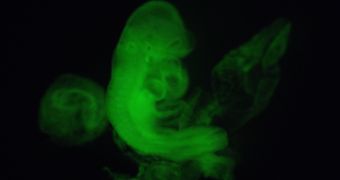After struggling with convincing critics among strangers and peers alike for five years, young stem cell biologist Haruko Obokata at the RIKEN Center for Developmental Biology in Kobe, Japan, has finally demonstrated that stem cells more malleable than induced pluripotent stem cells (iPSC) can be produced through a simple, low-tech method.
Japanese investigators were the first to demonstrate 8 years ago that fully-differentiated, adult cells in the body could be made to revert to an earlier state, which they termed pluripotency. Now, a new paper demonstrates how a different type of stem cells can be produced even faster, more efficiently, and cheaper.
The cells are produced through a process called stimulus-triggered acquisition of pluripotency (STAP), which involves exposing adult cells to stress. Obokata says that three types of stressors in particular appear to be the most effective, including physically squeezing the original cells, exposing them to low pH (acidic) conditions, and exposing them to a certain bacterial toxin capable of perforating their cellular membranes.
The researcher's effort to convinced everyone that these readings were not an artifact stemming from the research methodology has now paid off, and her manuscript is published, and in this week's issue of the top scientific journal Nature nonetheless.
“It’s amazing. I would have never thought external stress could have this effect,” says RIKEN CDB stem cell researcher Yoshiki Sasai, who is also a coauthor of the Nature paper. “Everyone said it was an artifact – there were some really hard days,” Obokata adds.
One of the main advantages that STAP cells have over iPSC and other stem cell varieties is that they can form placental tissue, something that other cells in this class cannot do. According to the RIKEN team, this advancement could make cloning a lot more feasible than it currently is.
In the paper, Obokata reveals that her three stressors were already successful in turning brain, skin, lung and liver cells into STAP cells. In total, a dozen cell types have been converted, and more tests will follow soon on other cell types.
“The findings are important to understand nuclear reprogramming. From a practical point of view toward clinical applications, I see this as a new approach to generate iPS-like cells,” comments iPSC research pioneer Shinya Yamanaka, quoted by Nature News.

 14 DAY TRIAL //
14 DAY TRIAL //